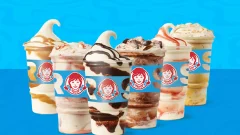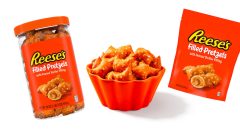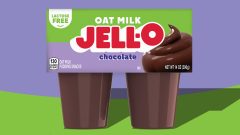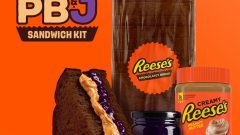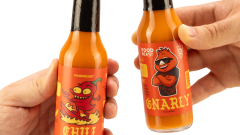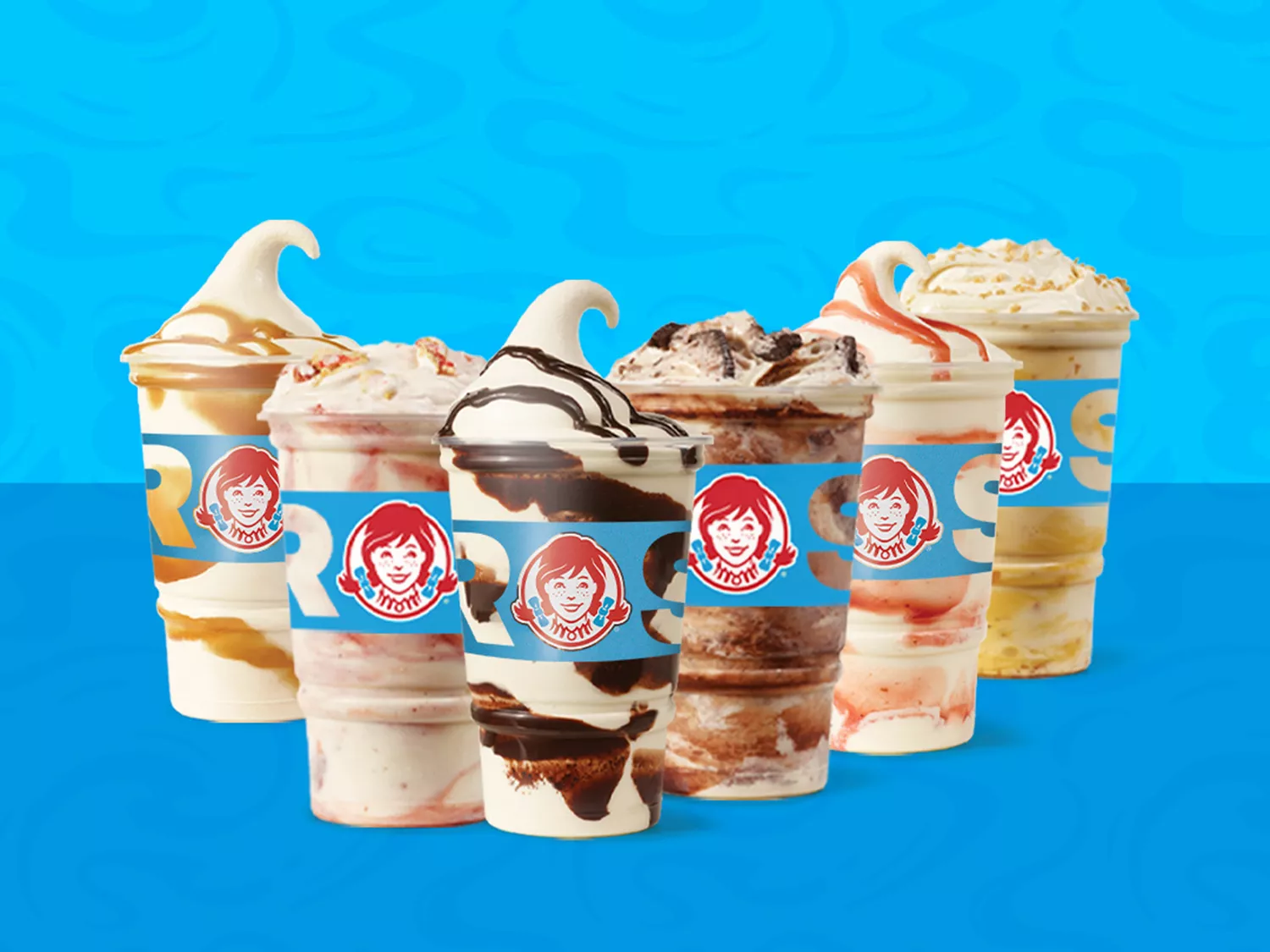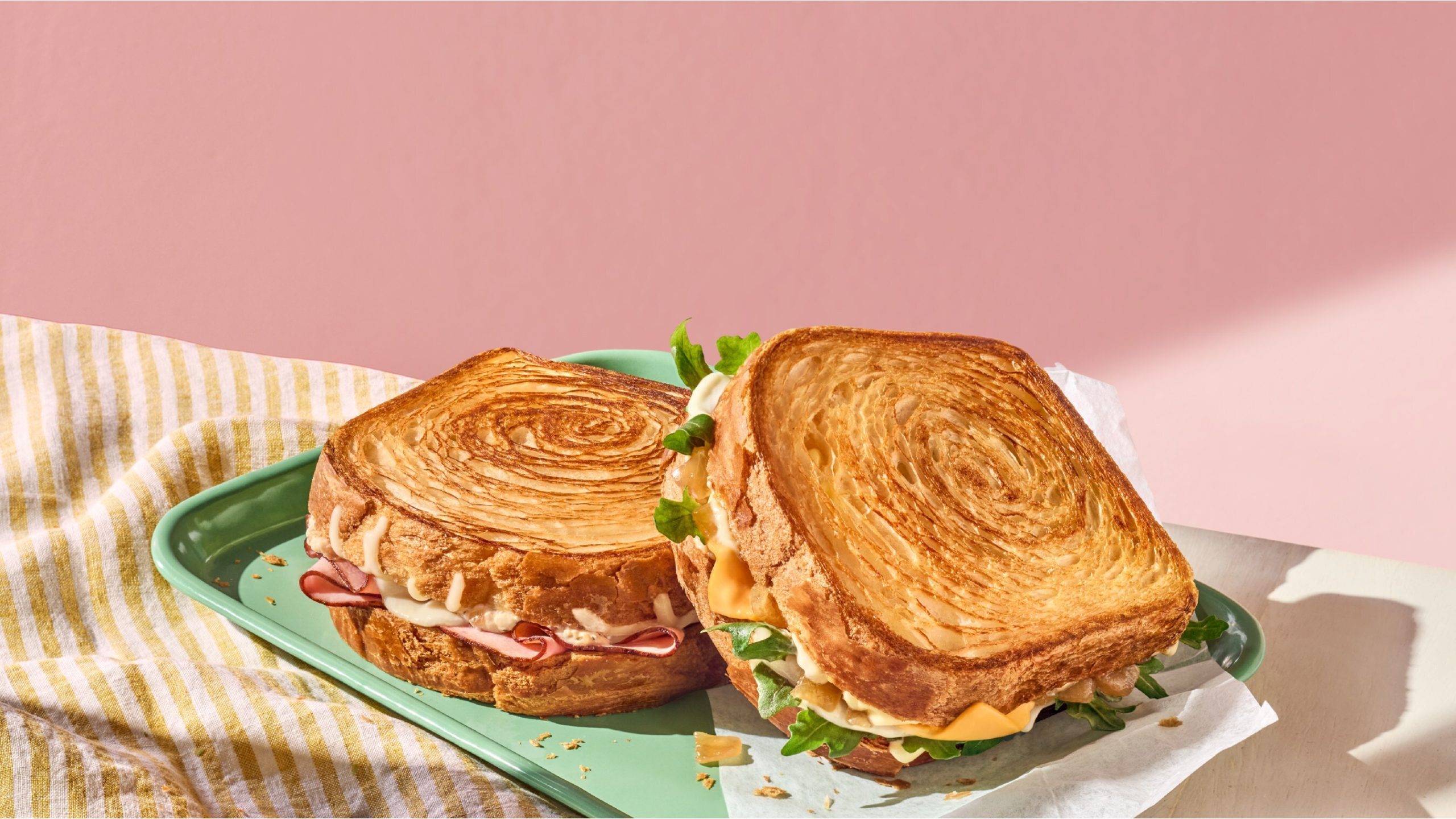This Donut Shop Brings Mexican Pop Culture To Life With Each Bite
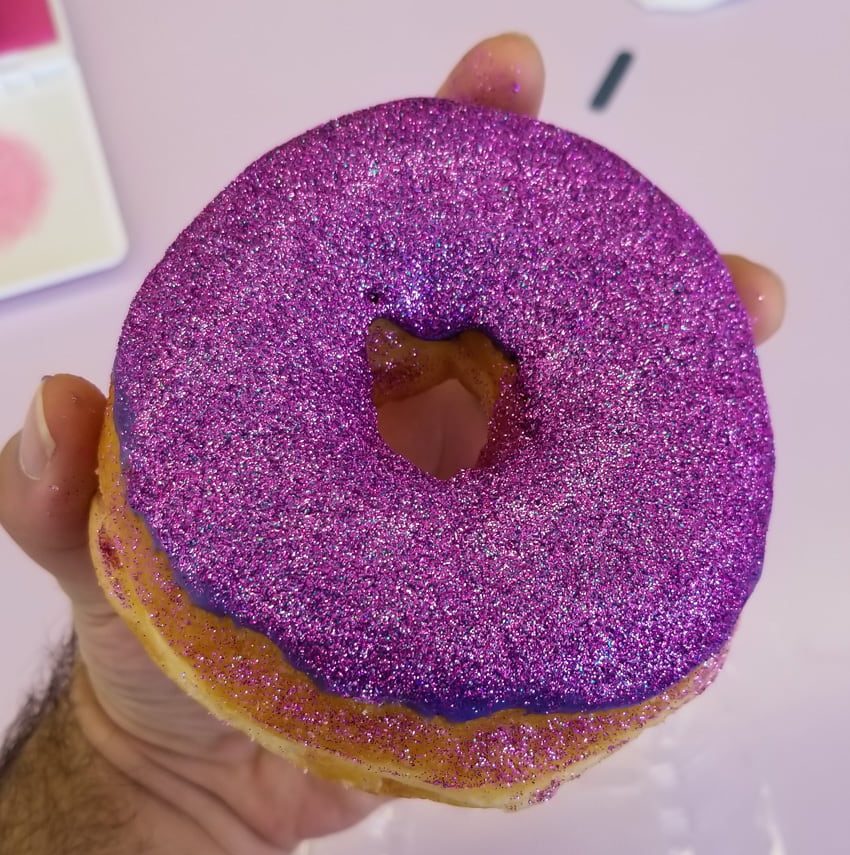
There’s a little shop in Downey, California that not only offers an array of whimsical doughnuts, but offers a taste of pop culture, experience, and taste that many Latinos grew up with.

While a glittery purple or silver doughnut might be convincing enough for you you to come in and snap a photo of, Donas also serves as a gateway into the nostalgic memories of Mexicans who grew up with Selena, El Santo, or Abuelita hot chocolate.
“It is very important for us to be able to offer these flavors, and a sense of culture, tradition, and a sense of nostalgia,” Ashley Leon-Vazquez, part owner of Donas said.

Even its name, Donas, comes from a common mispronunciation of doughnuts in the Chicano community. As is the case with its name, every item on the menu had a lot of thought put into it, as Leon-Vazquez attributes the bulk of the flavor creations to her husband David, and sister Amber Bobadilla.
For example, their doughnut ice cream sandwich isn’t merely to entice with shock value. With flavors of a classic Mexican fruit salad, the coconut and strawberry-topped sandwich gives you an unusual spin on the beloved “bionico.”
Same can be said with their chicharron doughnut, which is essentially supposed to mimic a maple bacon one. And there’s their signature purple Selena doughnut that’s blasted with glitter, just like the late great singer’s famous jumpsuit.
“The idea behind the flavors of the doughnuts is mixing a Latino element to it,” Leon-Vazquez said. “At first, our purple doughnut was just a honey-lavender doughnut, but when we made the doughnut, it was like, ‘Oh, my God. This looks like Selena’s outfit.’ Those are the kind of things we played with while naming the doughnuts.”
The minds behind Donas also created a Mexican drink-inspired shop called Horchateria Rio Luna, which has quickly become a go-to spot for Horchata lovers in Southern California. Similar to what they did with Donas, Leon-Vazquez and Bobadilla found a flavor essential to Mexican culture, remixed it, and made it attractive to a wider audience.
“About 90 percent of the time, those who aren’t Latino, but are interested in what we’re doing, and the flavors, and the culture, and the colors, and the art— they get it, they get what we’re trying to do, and are willing to try something new. And they usually like it,” Leon-Vazquez said.

The doughnut shop is clearly more than just its colorful Selena doughnut, and while it is definitely a flashback for Latinos who grew up with these familiar tastes, the cultural details are delicious enough for all doughnut lovers, regardless of background.

